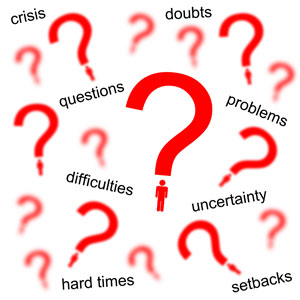 One of the reasons that random drug and alcohol testing programs are so important has nothing to do with keeping substances out of the workplace. It has to do with fairness and not rushing to judgment. Sometimes it is difficult to differentiate when a person is having personal problems as opposed to being a substance abuser. The reality is that people with severe personal problems can exhibit many of the same symptoms as people using drugs or alcohol. Therefore, drug and alcohol tests that use reliable equipment or supplies and quality screening services protect workers from being unjustly accused of substance abuse.
One of the reasons that random drug and alcohol testing programs are so important has nothing to do with keeping substances out of the workplace. It has to do with fairness and not rushing to judgment. Sometimes it is difficult to differentiate when a person is having personal problems as opposed to being a substance abuser. The reality is that people with severe personal problems can exhibit many of the same symptoms as people using drugs or alcohol. Therefore, drug and alcohol tests that use reliable equipment or supplies and quality screening services protect workers from being unjustly accused of substance abuse.
Anyone who has experienced a critical personal problem and experiences extreme stress knows that the body and mind are impacted. This can lead to odd behaviours and extreme emotions. People under stress lose their perspective and make poor decisions. They overreact to situations and easily get into arguments with co-workers. Personal problems that cannot be left at home are brought into the workplace, leading to workers being over-critical and difficult to work with on a regular basis.1 These people make more mistakes at work and have trouble handling the demands of their jobs.
Same Patterns but Different Causes
In fact, people having problems with family, finances, relationships, employment, and so on can experience many of the same physical effects as substance abusers. For example, stress can cause high blood pressure, contribute to weight gain or loss, lead to skin rashes, and so on. Stressed workers miss more work days due to sickness. When they do show up, they are less productive and unreliable because their thoughts are focused on personal problems. They have trouble sleeping, and that increases the negative impacts of stress on physical health and emotional well-being.
These are symptoms of stress. They are also the symptoms of substance abuse. A person using drugs or alcohol, especially on a routine basis, will have changing sleep patterns, experience noticeable changes in their weight, develop low self-esteem, and go through a series of mood swings.2 Emotional outbursts are common, making the substance abuser difficult to work with because co-workers have no idea how the person will react to any particular situation.
What people under stress and drug addicts also have in common is the fact they are hiding something, so they can be evasive and refuse to answer questions. It is easy to assume a person experiencing changes in their behaviour or temperament is using some kind of drug or is an alcoholic, when in fact the person is exhibiting stress symptoms. Employers should only address worker problems from the perspective of job performance. When an employee is having problems, the employer can kindly remind the person there are resources available for employees needing assistance but cannot invade a person’s privacy. However, a random drug and alcohol testing program is valid according to the law and protects the employer and the employees from unjust accusations.
Powerful Knowledge
Employers should be aware that odd behaviour and emotional outbursts can be indications of substance abuse or a person under extreme stress. Each situation is different and achieving consistent responses as an employer can be challenging. Random drug and alcohol testing programs do more than simply detect substances. They enable employers to separate workers using illicit substances from those who are experiencing life problems. That is powerful knowledge that can guide an employer as to the next best step to take.
Mediscreen (mediscreen.net.au) offers dependable screening services that help employers administer reliable drug and alcohol testing programs. Team members can collect and test samples on a schedule that fits the employer’s needs.
Resources:
1 Workplace and Personal Stress. (n.d.). Retrieved from Law Institute Victoria: http://www.liv.asn.au/PDF/GettingAdvice/LawCare/LawCare_Stress.aspx
2 Drug & Alcohol Recovery & Education Centre. (2013). Addictions. Retrieved from Watershed: http://watershed.org.au/addiction-information.html


